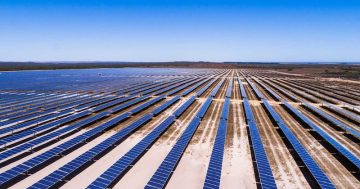
Opposition Leader Peter Dutton is promising the earth but without much evidence or detail. Photo: Peter Dutton Facebook.
Peter Dutton’s nuclear gambit is about power but not necessarily electricity.
Those now in charge of the Coalition have judged that the path back to government is to stoke and exploit fears about power prices, cost of living and renewables not being enough to keep the lights on.
And to offer a panacea way off in the distance that will provide consistent zero-emissions power while retaining current coal-fired power sites as long as possible and building new gas plants, while limiting the growth of solar and wind.
In the long lead time to actually having a fleet of seven nuclear power stations across five states, Australia will keep chugging along on coal and gas, much to the delight of organisations like the Minerals Council of Australia.
There is so much wrong with this announcement (it can’t be a policy because there are few details) that Prime Minister Anthony Albanese might be tempted to call an early election to put a quick end to this adventurism and restore certainty for business and the markets. And before the social media misinformation machine cranks up to show how offshore wind farms will kill whales or how farmland is to be carpeted with solar panels.
Perhaps those sucked in by this nonsense would prefer water-guzzling coal mines, oil or gas platforms off the coast, or more fracking across the countryside. The farmers worried about land subsidence and their water access might prefer something more benign that could also provide alternate revenue streams.
Labor might be too slow for some in supporting the energy transition or misguided in keeping gas in the mix, but the alternative now presented by the Opposition is pure political opportunism, which shows that it has never accepted the science of global warming and climate change, because even if you can accept nuclear power as zero-emissions option, and that the questions of cost, safety and radioactive waste can be resolved, we don’t have the luxury of time to decarbonise.
Dutton’s plan will squander Australia’s natural advantages and extend and increase carbon pollution at a time when the planet desperately needs to do the opposite.
It will also intervene in the market to suppress cheaper-and-getting-cheaper renewable power sources and storage technology to favour fossil fuels and the development of the most expensive electricity generation on the planet.
How a proper business case would stand that up is unfathomable.
Dutton says that two small modular reactors – technology that is currently not in commercial use anywhere in the world – could be in place as establishment projects by 2035. But if Australia opted for large-scale plants, the first one could be providing power by 2037.
That’s a heroically optimistic timeline for a country without a nuclear industry and workforce to plan and build a plant.
CSIRO believes it would be more like 2040.
Dutton is also, of course, promising cheaper power bills but without any evidence.
Then there is the sheer cost.
CSIRO estimates building a large-scale nuclear power plant in Australia would cost at least $8.5 billion and produce electricity at roughly twice the cost of renewable sources.
In Britain, the cost of the Hinkley Point C nuclear power station, which began construction in 2017, has blown out to an estimated £46 billion ($87b) and has been delayed by up to three years to 2031.
Nuclear power is also banned in Australia, and a Coalition government would need to overturn it in the Senate (unlikely) and override state bans in Queensland, NSW and Victoria if a bucket of money won’t do it.
The Coalition also faces opposition within its own ranks, especially at the state level.
So, is Dutton just flying a kite here?
Given the volatility of the electorate, the pain inflicted by power prices, interest rates and inflation, and the way in which public opinion can be shifted dramatically, the Albanese Government needs to take the Coalition’s nuclear ambitions seriously.
That means spelling out its own plans for the energy transition much better than it has done, as much as pulling apart Dutton’s nuclear plan.
The risk for Dutton is that even more Teals emerge to take Coalition seats and the plan blows up in his face.
In the ACT, the prospect of the Liberals retaking its lost Senate seat now looks remote.
Local leader Elizabeth Lee has already moved to distance the Canberra Liberals from the federal party, but the fallout could be difficult to contain.




















